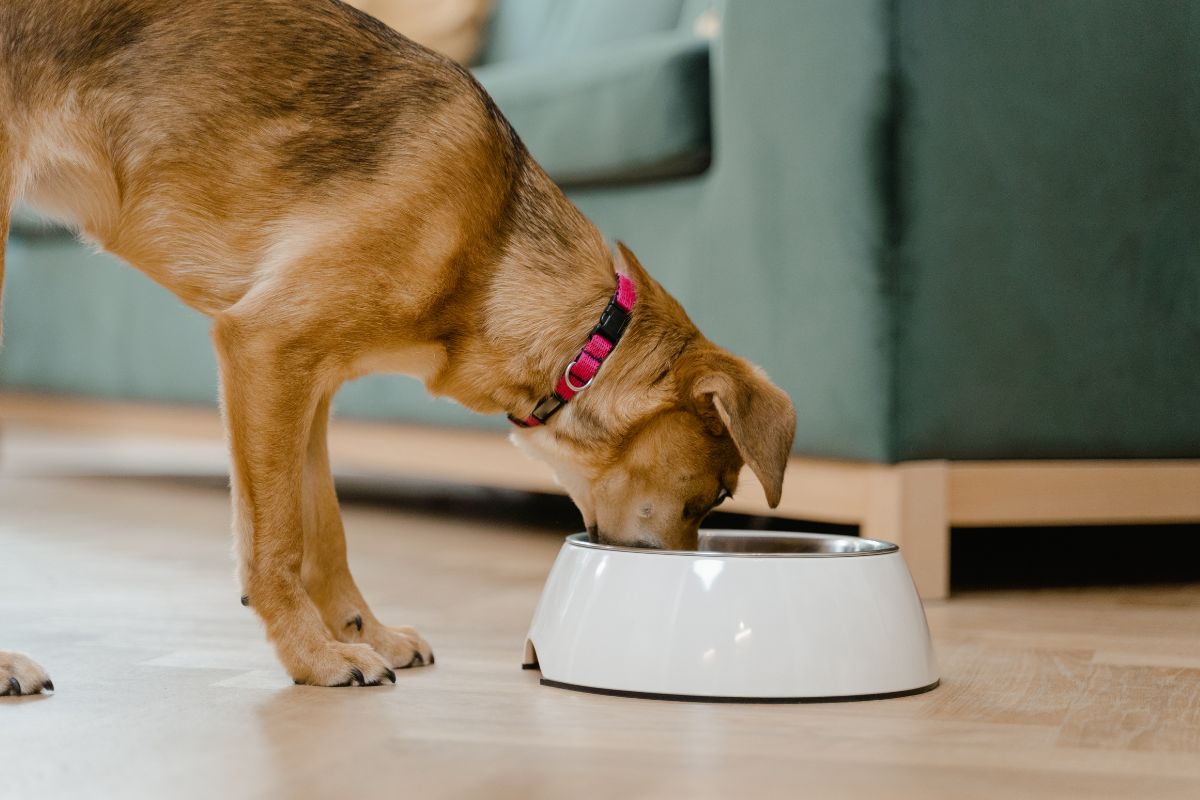Is your dog not taking the complete diet or food? There can be a variety of reasons why your Dog Not Eating completely. We, as pet lovers, know how distressing to see our dogs when they won’t eat. It is important to determine the cause and plan the best treatment for our dogs. The first and foremost thing is how you’re judging your dog’s appetite. If you are concerned about your dog’s low diet or they are not eating as stated on food packets, remember that even healthy dogs also don’t eat as much as stated on the food packets you buy.
The stated guidelines on the food packets are only averages, many dogs eat only 60% to 70% amount of it. Dogs can also go for few long hours or a day without food and without any bad effects on their health. Hence, the cause can range from misbehavior to serious health issues but when a dog refuses food, it is best to address the problem earlier. So, to help you and your lovely canine friend here we have a few common reasons and solutions you should know as a responsible pet-parent.
Reasons For Dog Refusing Food
1. Illness
When a dog refuses food it is often a sign of sickness, especially if your dog is exhibiting other symptoms at the same time. A decreased appetite or loss of appetite in dogs doesn’t necessarily indicate serious disease, earlier check-up by your veterinarian is important because it can be a sign of illness, including cancer, various digestive infections, pain, liver problems, and kidney failure.
2. Oral Disease
Examine your dog’s dental health. It is possible that your dog may have some pain in their mouth which makes them discourage to eat. Look for any signs of dental pain like broken tooth, swollen gums and bleeding. Make sure there is no severe gingivitis or an oral tumor.
3. Vaccination
Vaccinations are frequently given to dogs for many serious as well as preventative cares. Being helpful and effective these injections sometimes have minor side effects too. These minor side effects also include temporary loss of appetite in dogs. So, always keep a record of the recent vaccination administered to your dog. It will help your veterinarian to advice the best solution according to your dog’s health.
4. Travel and Unknown Places
It’s common for dogs that they won’t eat if they travel or move to new places. Due to traveling, and unknown places, initially they refuse to eat their usual diet. Some pets may become nervous and uncomfortable in new places and others can get motion sickness as well.
5. Behavior
In some dogs, it’s normal they refuse to eat if they are getting their food in situations where they feel uncomfortable like around an aggressive dog or from a bowl at a high spot. Before assuming your dog is picky you should investigate other possibilities first and consult a pet behavior trainer or expert vet for getting your dog to eat regularly.
What to do when your dog refuses food?
Well, it depends on the cause of the problem detected by you and your veterinarian. If your dog’s loss of appetite problem is caused by a health illness, then you should follow your vet’s advice. Mostly, in such cases, Vets put dogs on a different diet from their standard or usual food plan to sufficient nutritional needs. They may also advice some treatment or nutritional supplement as a diet to encourage your dog’s appetite.
Sometimes, these diets are not readily accepted by dogs. Do not attempt to force your dog to eat the treatment diet. So, at this time you should avoid giving human foods and other regular treats to your dog. And talk to your veterinarian about another diet and be in touch with them to cure and make your dog getting back to normal.
On the other case, when your dog is not eating because of some behavioral problem or being too picky, then you can try these solutions:
- Stop giving your dog unnecessary treats.
- Maintain a regular time for feeding your dog, usually twice a day.
- Make your dog lunch time enjoyable for your dog by playing or giving the food as a treat.
- Try changing feeding bowl or place.
- Take your dog for a walk before mealtime.
- To make food more appealing for your dog, try to add some warm water to it.
- If you normally feed your dog dry food then try some canned food and vice-versa.
It can be distressing to see your dog refusing food, but it’s important to take proper care being a responsible pet-parent. Keep an eye on your dog’s diet and seek your veterinarian’s help if you observe your dog ignoring the food.
It will help you cure the appetite problem of your dog at its earlier possible stage and will keep your dog healthy for many years ahead.
Tags: dog caredog healthDog Parentsdogs

